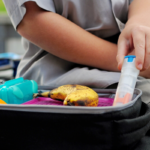The World Head Injury Awareness Day falls on March 20th every year and it looks at the number of people who suffer from a mild bump on their head to severe brain injury. The purpose of this day is to remind us of how we could reduce accidents and brain injuries if we are mindful.
Head injuries in children can be a serious concern and require prompt medical attention. Young children are more susceptible to concussion than adults are, not only because they are more likely to be active and involved in sports, but also because their brains are not yet fully developed and thus more vulnerable to injury.
A head injury is a traumatic insult to the head that may result in injury to either, the soft tissue, the bony structures or the brain itself. These injuries can occur from road accidents, falls, assaults or can be sports-related.
The aim of this day is to remind us how and where possible we could play our role in reducing accidents and brain injuries.
World Head Injury Awareness Day advocates the correct usage of helmets and seat belts, which can significantly prevent or lessen trauma to the head in accidents.
If your head suffers a fairly mild injury, in sport, a vehicle accident, or from a simple slip and fall, it can cause symptoms you don’t expect. If it has not been addressed, it may have long-term consequences.
Head injuries can inflict major damage to the central nervous system and our brain. Even minor head trauma can lead to serious complications should the correct care and treatment not be received in time. Injury to the head can result to anything from concussion, memory loss to severe paralysis and even death. Many people are partially or fully paralysed, simply due to them not wearing the appropriate head gear at the time of the accident. Interestingly, serious brain damage can occur even if the skull remains intact.
Symptoms to look out for:
- Physical symptoms like headache, nausea or vomiting, drowsiness or fatigue, problems with your speech, dizziness or changes in sleep patterns.
- Cognitive symptoms like irritability, mood swings, a feeling of tiring easily, depression, a feeling of being confused or dazed, or an inability to concentrate.
- Sensory symptoms like blurred vision, ringing in your ears, changes in taste or sensitivity to sunlight and other bright lights, or sounds, you may need medical attention including vestibular rehabilitation therapy.
When to be worried:
- If the person can’t be roused within the first 6 hours of the injury occurring.
- If there are behavioural changes i.e aggression.
- If there is a loss or decreased level of consciousness.
- If there is a severe headache with projectile (fountain) vomiting.
- If there is speech difficulty.
What to do:
- Anyone with an injury to the head needs to be monitored for at least 24 hours.
- Call for help or transport the person to the hospital if their symptoms worsen.

Head Injuries in Children
The World Head Injury Awareness Day falls on March 20th every year and it looks at the number of people who suffer from a mild bump on their head to severe brain injury. The purpose of this day is to remind us of how we could reduce accidents and brain

Top tips for staying healthy
Here are some tips for parents to help keep their children healthy during the colder seasons. Practice good hygiene: Encourage your children to wash their hands frequently and cover their mouths when coughing or sneezing. This can help prevent the spread of germs and illnesses. Dress appropriately for the weather:

How CPR saves lives
Knowing CPR can save someone’s life, our trauma expert, owner and founder of Survival CPR, Sister Catherine Rodwell, explains what CPR is, who can do and why it is so important that anyone (especially those in any caregiving role such as a parent or nanny) should take a course and keep

Return to School Safely
As schools have started in January, it is important that CPR and First Aid training is in place to ensure a safe return. It is vital that the school staff receive full CPR and First Aid training and are confident and are competent and most importantly, are up-to-date with their

Are you looking to employ a Caregiver?
We provide a platform to assist employers and families with their search for qualified and professional Caregivers, (we do not employ Caregivers directly or provide home care directly.) We understand how important it is to find a suitable and qualified caregiver for your specific needs. This platform has been designed to

10 Summer Safety Tips
Holiday time is important, so that you and your family get to spend quality time together. Whether you are going away on holiday or staying at home, here are our 10 Summer Safety Tips to keeping the family safe. Make sure you have a fully stocked First Aid Kit Make

Sunburn in childhood increases the risk of developing skin cancer
Sunburn in childhood increases the risk of developing skin cancer If you help children to develop good sunscreen habits from an early age you are protecting them from skin problems later on in life. Make it part of your routine to apply sunscreen in the morning before you leave for

Home safety checklist
Home Safety is important so as to avoid accidents! Do you know how to make your home safe for your child? You may think of all the obvious dangers, but it is so important to check that your house is accident-proof for your child. For most of us, the word

First Aid Treatment for Burns
First Aid Treatment for burns, (any second degree or third degree burn requires medical attention ASAP!) Remove the person from the hazardous area. Cool down the burn site for at least 15-20 min under running water – this is the golden rule. Meat (flesh) continues to cook even when it is removed


